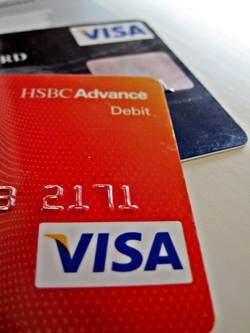
So much for the idea that online merchants are becoming safer than old-fashioned brick-and-mortar stores. Apparently, they’re all dangerous. And so much for any sense of the security as we enter the brave new world of commerce.
As someone I know wondered out loud the other day, “Does anyone really believe it won’t be possible some day to hack a smart car and force people to drive off a cliff?” In spite of the James Bond quality to such an idea, the answer is no. Few people discount that possibility.
We are, as a nation, well aware of the risks technology holds — risks that could threaten commerce, employment and the
| | economy, even though they haven’t yet. It wasn’t always this way. When I was a child in the 1960s, my father worked in the budding computer industry. I have memories of “family day” at the office, seeing large warehouse-sized rooms filled with machines that turned magnetic tape. It was a time when the future seemed filled only with wonder and promise. Few people had the keen insight to see the dangers. One of them was Martin Ernst, head of management science at Arthur D. Little, Inc. In a 1970 New York Times op-ed titled, “What else will computers do to us?” he predicted problems in the realm of privacy, “in regard to credit information, though even more serious invasions may occur in the collection and transmission of health, employment and other data.” He added this gem: “We have collected and employed credit information for a very long time, but never with the degree of completeness and nationwide access made practical by the computer.” So much for the idea that predicting the future is impossible. And so much for the idea that doing so will lead to fame and fortune. We are living in Martin Ernst’s future, and nobody knows it. It is the completeness of information he spoke about that has us all feeling vulnerable as we contemplate how to both engage in commerce and hang onto our wealth and our identities. Earlier this year, a Texas-based company that monitors high-tech crimes issued a report that said the attacks on Target, which may have affected 110 million customers, and Neiman Marcus were likely just the most visible tip of a much larger problem. Criminals use software called Kaptoxa to infect point-of-sale computer terminals. It sends stolen credit information, then deletes any trace of what it has done. A Bloomberg report said the software shows “how cybercriminals are outpacing the ability of companies to respond.” Retailers could respond with sophisticated chip-and-PIN credit cards that immediately encrypt a consumer’s information at the point of sale. Such systems already are in use in much of Europe. But a recent CNN Money report suggests retailers are dragging their feet because chip cards would keep them from collecting information, as well. Without your information, they can’t send targeted ads that keep you coming back. Consumers let them get away with this paltry excuse. Despite all the dire news stories, the constant warnings to change passwords and the real tales of lives that have been altered by cyber thieves, few people seem alarmed. Humans have a remarkable ability to adapt to new realities, and they are quick to calculate relative benefits and costs. The benefits of computers and the Internet are so strong few people seriously consider abandoning them for some simpler version of a bygone era. Besides, getting there would be harder than trying to un-bite an apple. After all, consumers always have taken risks. In the old days, these involved someone stealing their cash or holding up the bank that held their savings. Today it involves cyber crimes that often can be minimized by banks if caught in time, and whose occasional massive problems still seem somehow remote. Smart consumers always calculate risks and take precautions. It’s just that — in a world where millions of people can have information stolen at once from unsuspecting merchants — those precautions are getting harder figure out. |

 RSS Feed
RSS Feed

